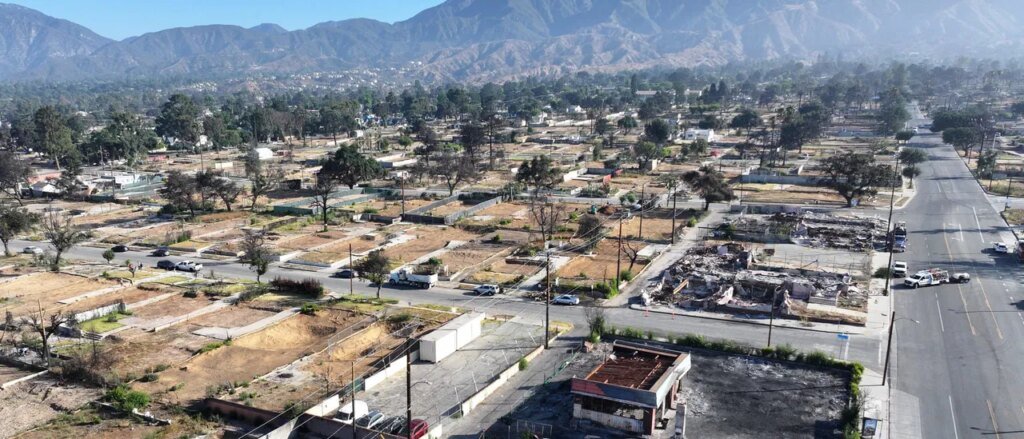California’s leading Democrats are touting the recovery from a devastating January as a significant achievement. But, seven months later, many victims are still unable to rebuild their homes.
In January, wildfires destroyed around 16,000 houses and buildings from Malibu to Pasadena, leading to an estimated $100 billion in damage claims. Governor Gavin Newsom and Los Angeles Mayor Karen Bass described the recovery efforts as “historical.” However, government data indicates that less than 13% of residential property permits have been approved by Los Angeles County.
“The number of permits issued for reconstruction remains very low,” noted Stephen Greenhut, director of the Pacific Institute’s Free City Center.
8:30am on Tuesday. Zero construction for over 8 months after the fire pic.twitter.com/clkujxyovr
– Adam Carolla (@adamcarolla) August 12, 2025
As of August 11, Los Angeles County, which oversees reconstruction in areas affected by the Eton and Palisades fires, issued just 120 permits out of 690 applications for new home construction. In total, 187 permits were issued for 1,497 applications, which also includes non-residential buildings and repairs.
Los Angeles itself has managed to issue 304 permits related to single-family homes, but only 142 of these are for new structures. The city received 1,024 applications from 629 different addresses.
In Malibu, the situation is even tougher. Only one out of seven submitted building plans has received approval, and the city reports that some permitting processes can stretch to 24 months, with planning fees starting at $11,579.
Despite this slow progress, Newsom claims the state has launched the fastest disaster recovery effort in U.S. history.
The bureaucratic delays are an ongoing challenge for those looking to rebuild. Meanwhile, opportunistic buyers are stepping in, with reports of a foreign investor spending $65 million on properties wiped out by the fire.
Greenhut mentioned that the state has introduced several measures to aid recovery, including exemptions from the California Environmental Quality Act (CEQA) and the California Coastal Act, streamlined building plans, and self-certification possibilities. Nonetheless, many residents feel that the rate of progress is much slower than what leaders have indicated, and some proposed solutions contradict community interests.
Newsom faced backlash after exempting certain areas from standard development regulations post-fires, after local concerns that such actions might lead to high-density housing without sufficient community input.
Legislation is underway to create “resilient rebuilding authorities” in Los Angeles County aimed at buying lots affected by the fires for low-income housing, with some locals labeling it a “land grab.” Additional bills that allow for more high-density homes near public transport are also being discussed.
Mayor Bass, who was out of the country during the fires that claimed 31 lives, has faced criticism for her handling of the crisis. She and other officials have been accused of poor management of forest areas, which has arguably worsened fire risks.
Neither Bass nor Newsom’s offices have responded to requests for comment.







